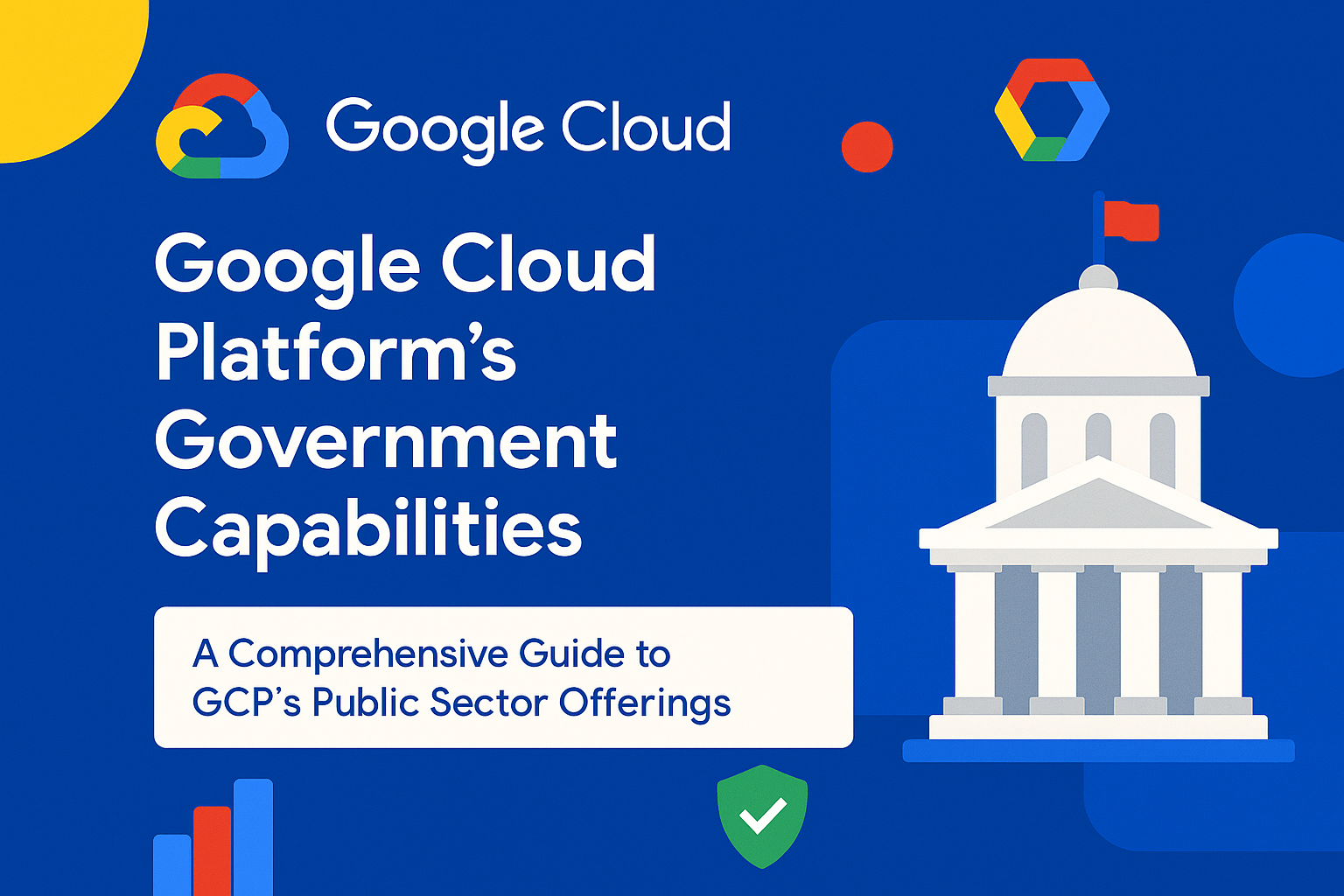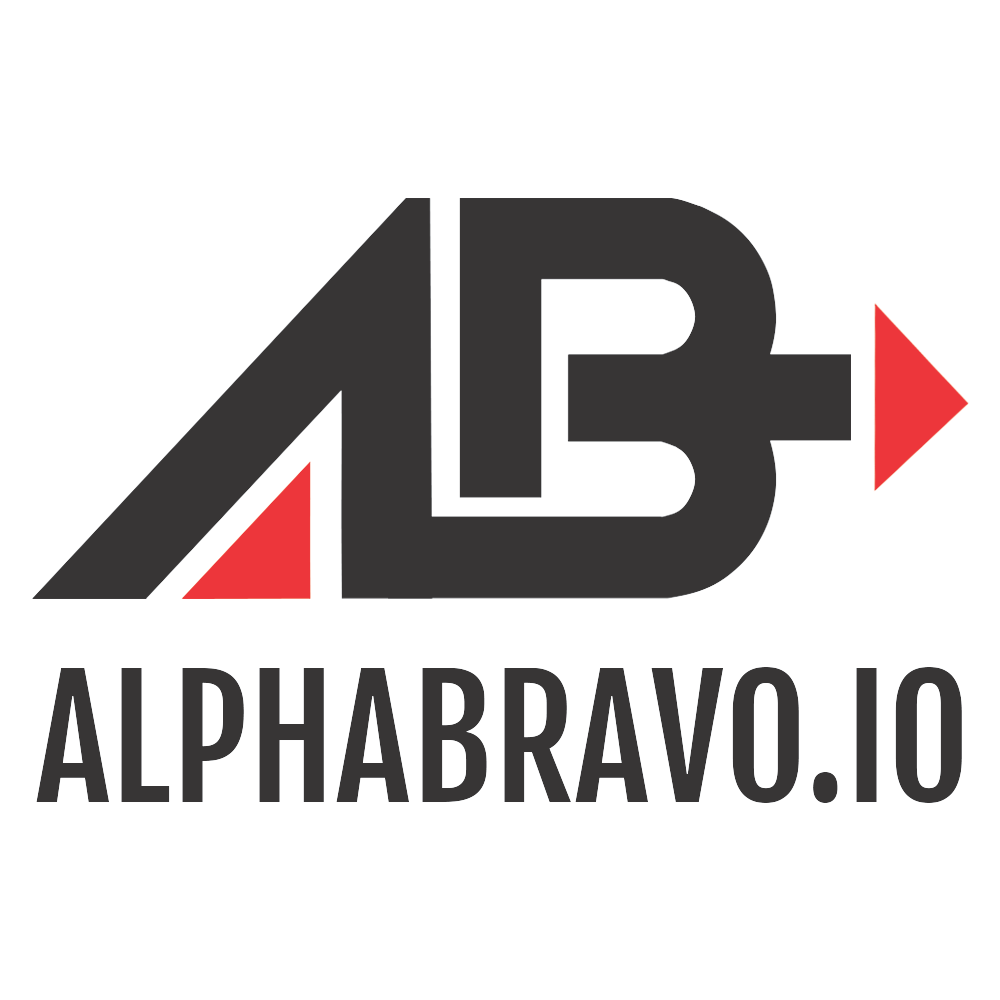Google Cloud Platform's Government Capabilities: A Comprehensive Guide to GCP's Public Sector Offerings
Google Cloud: secure, compliant, and AI-ready government cloud—without the GovCloud silo.

Google Cloud Platform (GCP) has evolved its offerings to meet the unique demands of government agencies, balancing compliance requirements with innovation capabilities. This guide explores how GCP's government-focused solutions differ from commercial offerings while providing secure, scalable, and compliant cloud services for public sector organizations.
Before diving into the details, it's important to note that Google's approach to government cloud services differs fundamentally from some competitors. Rather than creating entirely separate "GovClouds," Google has developed specialized solutions that leverage its commercial infrastructure while implementing additional controls and safeguards for regulatory compliance.
Google Assured Workloads: Compliance Without Compromise
Assured Workloads represents Google's innovative approach to meeting government compliance requirements without sacrificing the benefits of commercial cloud services. It allows organizations to easily configure and maintain controlled environments that operate within the parameters of specific compliance regimes.
Core Features and Capabilities
Assured Workloads provides a comprehensive set of controls that can be applied to folders in Google Cloud to support regulatory, regional, or sovereign requirements:
Data Residency Controls: Assured Workloads ensures that data is stored only in customer-selected Google Cloud regions. If a developer attempts to store data at rest in a non-approved region, the action is blocked. This capability is crucial for organizations with strict geographical requirements for data storage.
Data Sovereignty Mechanisms: Beyond simple data residency, Assured Workloads provides mechanisms for customers to exercise independent control over service provider access to their data. This allows organizations to approve access only for specific provider behaviors deemed appropriate and necessary.
Personnel Access Controls: One of the key differentiators for government workloads is controlling who can access sensitive data. Assured Workloads ensures that only Google personnel who satisfy specific physical location and background check requirements can access customer data when fulfilling support obligations. For example, Impact Level 4 (IL4) requires anyone accessing data to be a US Person who has completed an ADP-1 Single Scope Background Investigation (SSBI).
Enhanced Encryption Options: While Google Cloud applies FIPS-140-2 compliant encryption at rest and in transit by default, Assured Workloads can configure additional customer-managed encryption keys (CMEK) to provide an added layer of control and separation of duties.
Supported Compliance Regimes
Assured Workloads offers control packages for numerous compliance frameworks, making it suitable for various government agencies:
- FedRAMP Moderate and High
- Criminal Justice Information Systems (CJIS)
- Impact Level 2, 4, and 5 (IL2, IL4, IL5)
- International Traffic in Arms Regulations (ITAR)
- Healthcare-specific compliance (HIPAA, HITRUST)
- Regional compliance for multiple countries and regions
How Assured Workloads Differs from Commercial Offerings
Unlike standard commercial cloud environments, Assured Workloads creates boundaries that restrict resources to only those that meet compliance requirements. The service continuously monitors resources and alerts when one becomes non-compliant, helping maintain regulatory alignment over time. This approach provides government agencies with the security and compliance they need while still accessing innovative cloud services.
Google Distributed Cloud: Maximum Security for Classified Workloads
For government agencies with the most stringent security requirements, Google offers Google Distributed Cloud (GDC) Hosted, which represents a significant advancement beyond typical commercial cloud offerings.
Air-Gapped Security Model
GDC Hosted provides a comprehensive managed cloud solution that is completely air-gapped, meaning it does not require connectivity to Google Cloud or the public internet at any time to manage the infrastructure, services, APIs, or tooling. This full isolation ensures that data remains secure and private, making it suitable for classified, restricted, and top-secret data.
In April 2024, Google achieved a major milestone when GDC Hosted received Defense Department authorization to host secret and top-secret classified data, putting Google in a position to compete for classified business at the Department of Defense and U.S. intelligence agencies.
Comprehensive Solution Stack
GDC Hosted delivers:
- Hardware, software, local control plane, and operational tooling
- Google Cloud services, including data and machine learning technologies
- Complete customer control over data to meet strict security and privacy requirements
- Built on Kubernetes API and leading open-source components
- Flexibility to deploy in customer data centers or other facilities
Google's Philosophy: Beyond Traditional "GovClouds"
Google's approach to government cloud services fundamentally differs from some competitors. While some cloud vendors create isolated "GovClouds" that are separate versions of their commercial clouds, Google believes this approach can hinder the public sector's ability to innovate and scale.
Modern Approach to Security Separation
Google endorses a modern cloud approach based on logical and software-based separation instead of physical separation, aligning with the Office of Management and Budget's recent FedRAMP draft memorandum. This philosophy allows government customers to benefit from Google's entire infrastructure and innovation capabilities while still meeting strict security requirements.
Rather than building a "digital fortress" or isolated GovCloud, Google is committed to certifying its entire U.S. cloud infrastructure at Impact Level 5. This approach provides government agencies with greater access to cutting-edge technologies, particularly in the AI space, which traditional GovClouds might struggle to deliver.
Google Public Sector: Dedicated Focus on Government Needs
In 2022, Google established Google Public Sector to better serve government and educational institutions, demonstrating its commitment to the unique needs of public sector organizations. This dedicated division focuses on empowering the public sector with secure cloud-native infrastructure and accredited AI-powered solutions.
AI-Powered Government Solutions
Google Public Sector brings AI capabilities to government agencies to address various challenges:
- Improving constituent experiences, productivity, and learning
- Creating AI-powered contact center experiences
- Translating content into 135 languages with Translation Hub
- Accelerating service delivery by decreasing manual document processing
- Monitoring and managing climate change impacts
- Building, managing, and securing APIs for any use case
Business Impact and Advantages for Government Agencies
Compliance Without Compromise
Government agencies using Google Cloud don't have to choose between regulatory compliance and access to innovative cloud services. This balance allows them to modernize their infrastructure while maintaining security and compliance.
Simplified Security and Compliance
Assured Workloads allows government customers to configure regulated workloads with just a few clicks, significantly reducing the complexity of meeting compliance requirements. This simplification helps agencies focus on their mission rather than compliance overhead.
Cost and Risk Reduction
By simplifying the management of required controls, Google Cloud helps government agencies reduce costs and risks associated with compliance. This efficiency is particularly valuable for public sector organizations with limited resources.
Accelerated Authorization Timelines
Because Google's architecture incorporates a substantial portion of federal security controls, it's possible for agencies to demonstrate security compliance and obtain operating authority in weeks instead of months when implementing applications like Workspace or AI models like Gemini.
The Role of Government Support in Digital Transformation
Research indicates that government policies play a crucial role in supporting innovation and IT capabilities for organizations. Government policy assistance can boost IT capabilities and innovation, particularly for small and medium enterprises (SMEs).
However, during crises like COVID-19, government support can have complex effects. While it generally helps organizations maintain employment and operations, it can sometimes discourage organizations from effectively exercising dynamic capabilities. This highlights the importance of balancing government support with organizational autonomy.
The Future of Government Cloud: AI and Advanced Security
As government agencies continue their IT modernization journey, they are increasingly grappling with how to harness AI's power while securely managing their workloads. Google Cloud's expanding AI capabilities are designed to help government agencies better manage complex security, regulatory, and data privacy challenges.
Zero Trust and Compliance-as-Code
Using zero-trust principles and compliance-as-code technologies has become essential for creating and maintaining easily reproducible compliant workload environments. These approaches are particularly important given the diversity of government agency compliance requirements.
Integration of AI with Secure Workloads
By deploying AI capabilities within protected workspaces like Assured Workloads, government agencies can leverage advanced technologies while maintaining their security posture. This integration allows public sector organizations to benefit from AI while ensuring data protection.
Conclusion
Google Cloud Platform's government capabilities offer a modern, innovative approach to public sector cloud services. By avoiding the creation of isolated "GovClouds" in favor of applying specific controls to its commercial infrastructure, Google enables government agencies to benefit from cutting-edge technologies while meeting strict security and compliance requirements.
Through offerings like Assured Workloads and Google Distributed Cloud Hosted, along with the dedicated focus of Google Public Sector, GCP provides government organizations with the tools they need to modernize their infrastructure, enhance cybersecurity, and leverage AI for improved service delivery.
As government agencies continue their digital transformation journeys, Google's approach offers a compelling alternative to traditional government cloud solutions, enabling innovation without compromising security or compliance.

